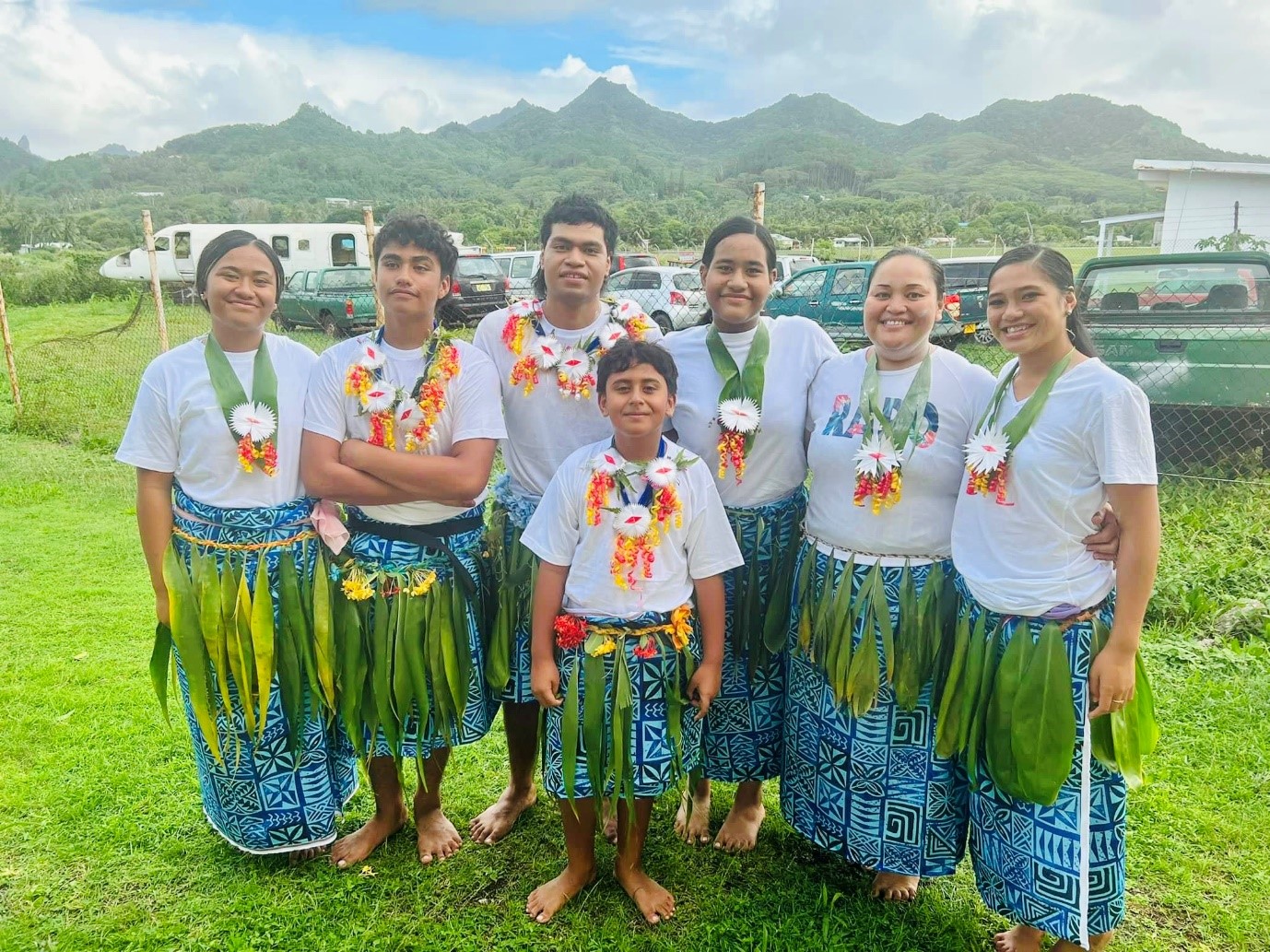‘It takes a village’: Rotumans in Rarotonga unite to keep culture alive
Saturday 25 May 2024 | Written by Solomone Taukei | Published in Features, Fiji, Go Local, Regional, Weekend

Zennarose Jessica and fellow Rotumans during the Rotuma Day Celebration.
SOLOMONE TAUKEI/24052463
The Rotuman community in Rarotonga recently celebrated Rotuma Day, marking the anniversary of the island’s cession to Great Britain on May 13, 1881.
According to Wikipedia, Rotumans are a Polynesian ethnic group native to Rotuma, an island group forming part of Fiji.
This annual Rotuma Day celebration is crucial for preserving the culture, especially for the younger generation.
With only four elders remaining in Rarotonga, the risk of cultural loss is significant if steps are not taken to revive and maintain Rotuman traditions.
The event featured cultural dances performed by children, many of whom are part Rotuman and have never visited Rotuma, at the Panama Hall.
“Having our children showcase our cultural dance here in Rarotonga is a step forward for our community,” said community member Dorinda Sitiveni.
She emphasised the importance of these performances in keeping the culture alive.
Beyond dance, other cultural aspects like weaving and agriculture need revival, the organisers said. Efforts in Rotuma include integrating these traditions into fashion shows to sustain families.
The community’s dedication was evident in the organisation of Rotuma Day, with special thanks to culture leader Zennarose Jessica Pene for her commitment, the elders for their support, and parents for bringing their children to practice.
The celebration demonstrated the community’s collective effort in preserving their heritage.
“They say it takes a village to raise a child, and our community has excelled in putting together a beautiful occasion for generations to come. Noa'ia 'e Hanisi,” Sitiveni said.














































